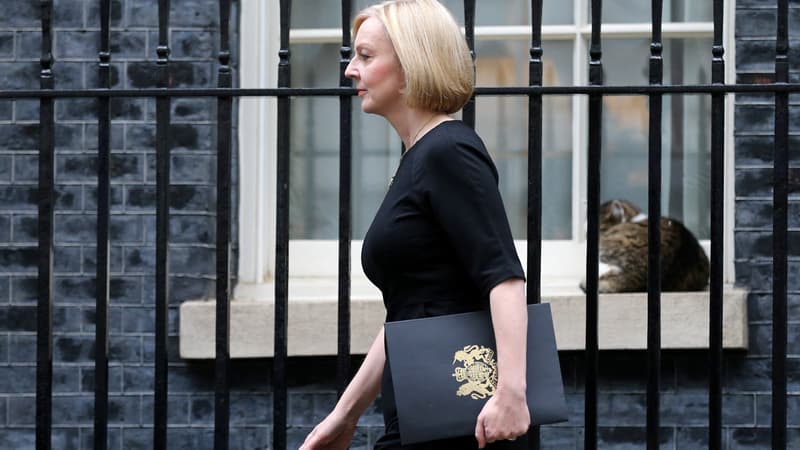The IMF has openly criticized the expensive economic support plan announced by the United Kingdom this Friday, even asking London to “re-evaluate” its measures at a time when the country is going through a serious economic crisis amid the escalation of the food prices. .
This plan, whose financing is still very vague, foresees a freeze in the cost of energy for individuals and companies, but also important tax cuts, the announcement of which has caused a collapse of the pound sterling in recent days and an increase in rates of indebtedness in the country. The sharp tax cuts planned by British leaders “are likely to increase inequality”, worries the International Monetary Fund.
“Reevaluate” measures
The Washington institution even goes so far as to ask London to “re-evaluate” these measures when it presents its budget on November 23, “especially those that benefit people with higher incomes,” in this statement in the unusually direct tone of the international institution. The energy price freeze, which alone is expected to cost £60bn over the first six months, is also at the center of criticism from the Fund, which recalls not recommending “broad, untargeted budget packages in this stage”.
“It is important that fiscal policy does not go against monetary policy,” the IMF also writes as the Bank of England tries to curb economic activity by raising rates to fight rising inflation.
The IMF will “closely monitor” the UK
“We understand that the great budget plan announced is aimed at helping families and companies cope with the energy shock and boost growth through tax cuts,” the IMF said, however, about the plan presented by the Chancellor Treasury (Minister of Finance) Kwasi Kwarteng. , saying that he was “watching closely” the situation in the UK.
The rating agency Moody’s is not far behind and says in a note that “widespread tax cuts not financed” by cuts in public spending will otherwise “lead to higher structural deficits, which have little chance of solving growth problems long-term” and could lead to debt. that’s hard to hold.
The British Treasury ended up responding this Wednesday to criticism of its budget plan: “We have acted quickly to protect households and businesses this winter and next winter, after the unprecedented increases in energy prices driven” by the Ukraine war, justified the Treasury in a press release. “We are focused on growing the economy and everyone’s standard of living and the chancellor ‘of the Exchequer Kwasi Kwarteng, who will meet with banking officials on Wednesday’, will publish a medium-term budget plan on November 23 that will “ensure that the debt decreases in its share of GDP,” he adds.
the pound sinks
The Kwasi Kwarteng budget announcements on Friday caused the pound to plunge to an all-time low. On Wednesday, the coin was down slightly 0.37% at $1.0692 around 09:00 GMT after rising a bit the day before. The planned expenditure, of which only part of the cost – aid for six months’ energy bills – has been quantified by London, is estimated by economists between 100 and 200,000 million pounds.
The latter are also concerned about the lack of rebalancing of public accounts by planning tax cuts in parallel to budget stimulus. Finally, the impact on the British economy has not been calculated either, although Kwasi Kwarteng has promised official forecasts for the end of the year.
Investor concerns were also palpable in the bond market, where the 10-year bond yield was tightening, hitting a new high since late 2008 at 4.59% at the start of trading on Wednesday, and the 30-year bond yields soared to 5.14%, the highest since 1998. The Bank of England opted to wait until its early November meeting to act, disappointing markets that had expected an emergency meeting after the crash in the pound sterling. He said, however, that the Liz Truss Conservative government’s “substantial” budget package would require an equally “substantial” interest rate increase.
Source: BFM TV


